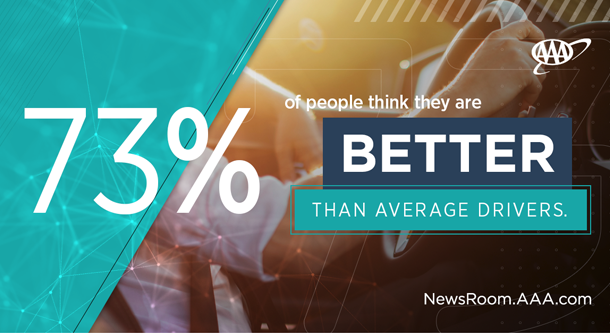
ORLANDO, Fla. (January 24, 2018) – American drivers are beginning to embrace self-driving vehicles, according to a new study from AAA. The annual survey reveals that 63 percent of U.S. drivers report feeling afraid to ride in a fully self-driving vehicle, a significant decrease from 78 percent in early 2017. Millennial and male drivers are the most trusting of autonomous technologies, with only half reporting they would be afraid to ride in a self-driving car. To ensure that American drivers continue to be informed, prepared and comfortable with this shift in mobility, AAA urges automakers to prioritize consumer education.
“Americans are starting to feel more comfortable with the idea of self-driving vehicles,” AAA Automotive Engineering and Industry Relations Director Greg Brannon said. “Compared to just a year ago, AAA found that 20 million more U.S. drivers would trust a self-driving vehicle to take them for a ride.”
While riding in a fully self-driving vehicle is a futuristic concept for most, testing of these vehicles in the United States means that sharing the road with an automated vehicle is an increasing near-term possibility. In this situation, drivers remain leery of self-driving vehicles. In AAA’s survey, only 13 percent of U.S. drivers report that they would feel safer sharing the road with a self-driving vehicle while nearly half (46 percent) would actually feel less safe. Others say they are indifferent (37 percent) or unsure (4 percent).
Additional survey results include:
- Women (73 percent) are more likely than men (52 percent) to be afraid to ride in a self-driving vehicle, and more likely to feel less safe sharing the road with a self-driving car (55 percent versus 36 percent).
- Millennials are the most trusting of self-driving vehicles, with only 49 percent (down from 73 percent) reporting that they would be afraid to ride in a self-driving car. While the majority of baby boomers (68 percent) still report being afraid to ride in a self-driving car, this generation is significantly more comfortable with the idea than they were a year ago, when 85 percent reported being afraid.
- Baby boomers (54 percent) and Generation X (47 percent) drivers are more likely than millennial drivers (34 percent) to feel less safe sharing the road with a self-driving car.
Although fears of self-driving vehicles appear to be easing, U.S. drivers report high confidence in their own driving abilities. Despite the fact that more than 90 percent of crashes are the result of human error, three-quarters (73 percent) of U.S. drivers consider themselves better-than-average drivers. Men, in particular, are confident in their driving skills with 8 in 10 considering their driving skills better than average.
“AAA found that American drivers are very confident in their driving abilities, which may explain some hesitation to give up full control to a self-driving vehicle,” Brannon said. “Education, exposure and experience will likely help ease consumer fears as we steer toward a more automated future.”
To help educate consumers on the effectiveness of emerging vehicle technologies, AAA is committed to the ongoing, unbiased testing of automated vehicle technologies. Previous testing of automatic emergency braking, adaptive cruise control, self-parking technology and lane keeping systems has shown both great promise and great variation. Future AAA testing will look at how well systems work together to achieve higher levels of automation.
AAA provides more than 58 million members with automotive, travel, insurance and financial services through its federation of 36 motor clubs and nearly 1,100 branch offices across North America. Since 1902, the not-for-profit, fully tax-paying AAA has been a leader and advocate for safe mobility. Drivers can request roadside assistance, identify nearby gas prices, locate discounts, book a hotel or map a route via the AAA Mobile app. To join, visit AAA.com.
